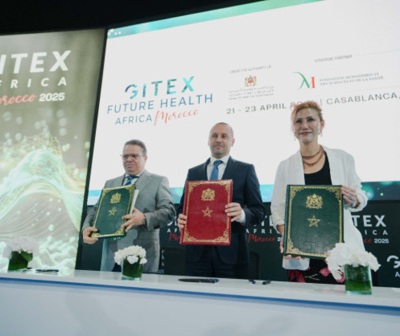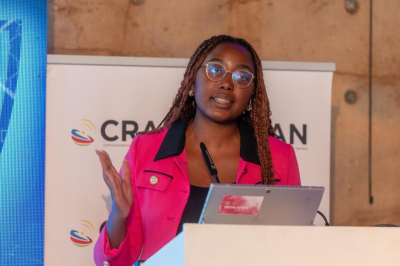The educational technology company Mavis Computel has been active in Nigeria for the past four years. It has managed to become a major actor in the education sector through its digital audio learning solution, Mavis Talking Books.
A Mavis Talking Book is a kit made of a digital pen (Mavis Pen) and a book with a special print. When the pen touches text or images in the book, it plays the matching audio recording. The books are suitable for both children and adults. The idea was born out of the desire of Chizaram Ucheaga, co-founder of Mavis Computel, to combat illiteracy in Nigeria, where the rate was about 39% in 2018 according to Unesco.
Chizaram Ucheaga explains that Mavis Talking Book allows “the provision of high quality, learner-centered education for all, irrespective of literacy level, location or language at a fraction of the cost of conventional educational approaches." Mavis Talking Books are translated into several local languages to facilitate learning for those who do not understand English.
“We have talking books for literacy, numeracy, health, and other subjects – for example, English with phonics, mathematics, languages (French, Arabic, Spanish, Hausa, Igbo, Yoruba). The books are designed to help semi-skilled or unskilled teachers teach while guiding the children to learn at the same time. We program quality content, developed by experts, into the talking book format in a language that the user understands, thereby solving both the quality and language barrier challenges. The talking books follow the national curriculum. They don’t require the Internet to function. One Mavis Pen can work with up to 100 different books,” he said.
Mavis Computel's books have become popular with a variety of targets, including farmers who can learn new agricultural approaches to develop their production. According to Chizaram Ucheaga, more than 8,000 in-school and out-of-school children in Lagos State and the Federal Capital Territories of Nigeria have already benefited from the innovation, through literacy and numeracy programs funded by UK Aid and the US Embassy since 2018. The startup hopes to reach 10,000 children, through a program funded by Borno State.
“For the various deployments, we provide a full range of services, which include stakeholder and community engagement, training for teachers, headteachers and state or local government education officials as well as officials from relevant agencies, conducting baseline to end line tests, deployment of the talking books and solar/inverter kits for charging the pens, regular monitoring, and evaluation, project documentary,” the founder said.
The solar kits ensure that teachers in rural areas, where electricity supply is unreliable or non-existent, can charge the digital pens each day after class. In this way, learners in marginalized communities are not excluded.
Ruben Tchounyabe



















